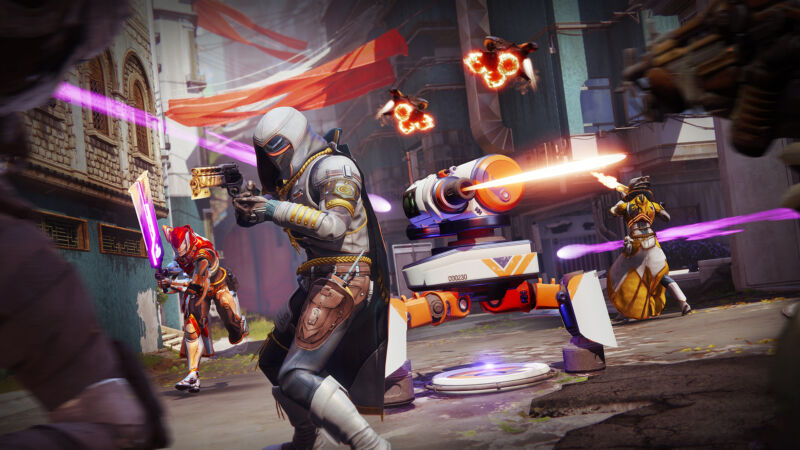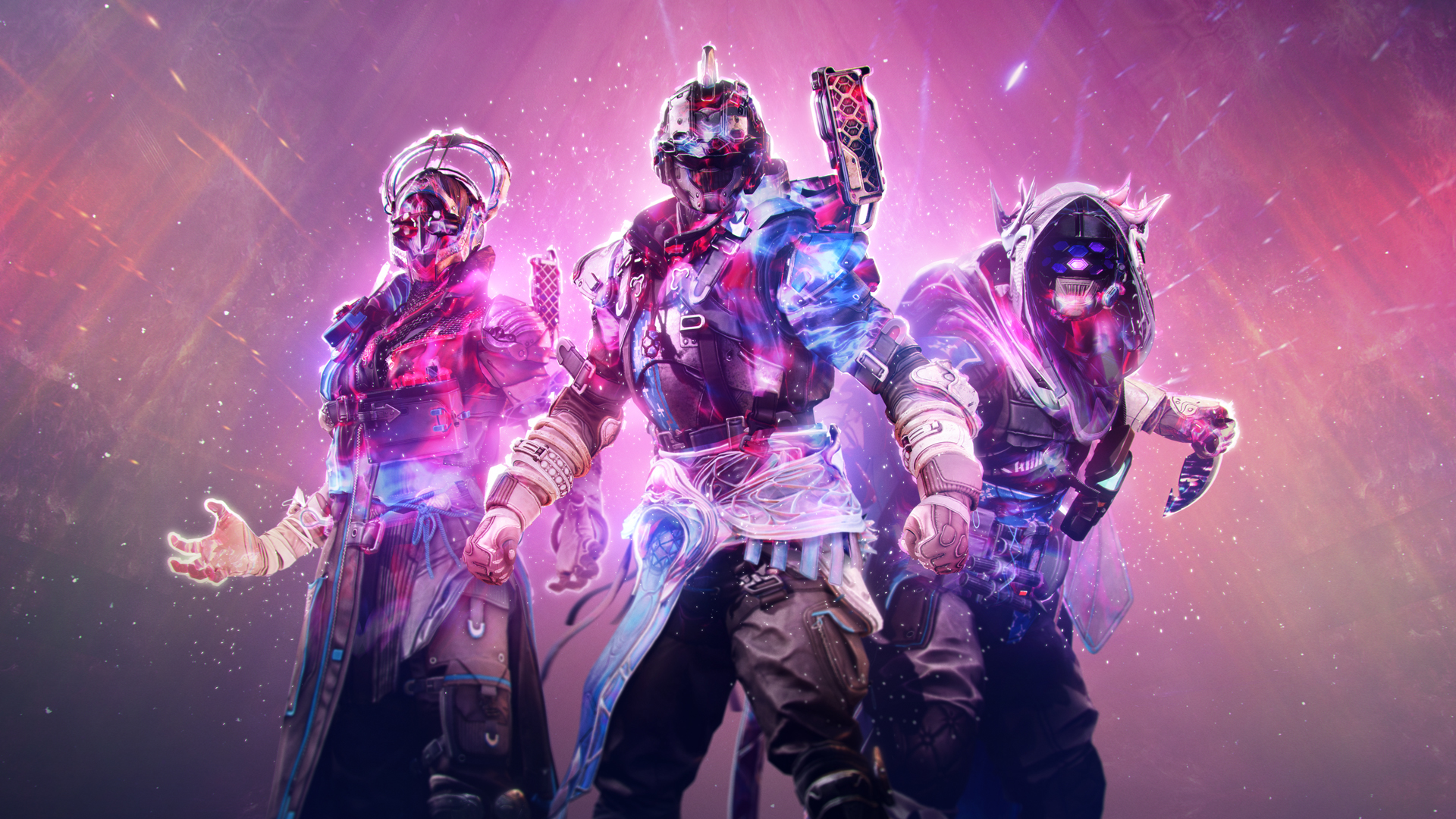
Bungie
They wanted to make money by selling cheating tools to Destiny 2 players. They may have ended up setting US legal precedent.
After a trial in federal court in Seattle last week, a jury found cheat-seller AimJunkies, along with its parent company Phoenix Digital and four of its employees and contractors, liable for copyright infringement and assigned damages to each of them. The jury split $63,210 in damages, with $20,000 to Phoenix Digital itself and just under $11,000 each to the four individuals. That’s just under the $65,000 revenue the defendants claimed to have generated from 1,400 copies of its Destiny 2 cheats.
Bungie’s case appears to have gone further than any other game-cheating suit has made it in the US court system. Because cheating at an online game is not, in itself, illegal, game firms typically lean on the anti-circumvention aspects of the 1998 Digital Millenium Copyright Act (DMCA). That’s how the makers of Grand Theft Auto V, Overwatch, Rainbow Six, and Fortnite have pursued their cheat-making antagonists. Bungie, in taking their claim past settlement and then winning a copyright claim from a jury, has perhaps provided game makers a case to point to in future proceedings, and perhaps more incentive.
AimJunkies may still appeal the jury verdict; Phoenix Digital founder David Schaefer told Stephen Totilo that he planned to fight the verdict. A separate arbitration ruling focused on DMCA violations, which granted Bungie $4.4 million in damages and fees from AimJunkies, remains under appeal, with AimJunkies claiming the arbitrator “blatantly disregarded” arbitration terms.

Meanwhile, in the game itself, a new subclass, Prismatic, “empowers you to combine Arc, Solar, Void, Stasis, and Strand into a custom subclass of your design.” Just a whole lot going on in Destiny 2.
Bungie
Hacking claims and maybe missing Bitcoin
As reported by TorrentFreak and Law360 in the courtroom, AimJunkies’ counsel stuck to its argument that, without access to Destiny 2‘s source code, they could not have committed copyright infringement. Instead, the cheat firm manipulated object code, or compiled output, to make their tools work.
Developer James May also furthered his claims that he was not a key part of the cheat’s code and that Bungie had “hacked” his computer. The hacking counterclaim had survived an earlier dismissal, in which AimJunkies and May argued that Bungie’s cheat monitoring software had reverse-engineered their code and violated the DMCA and Computer Fraud and Abuse Act (CFAA). The judge at that time criticized the CFAA claims for lacking evidence but allowed for amending and refiling. The jury did not find for May on his counterclaim against Bungie.
In Bungie’s complaint (PDF), and in opening arguments (as noted by Polygon from Law360’s paywalled reporting), there are confusing hints as to why the actual damages are relatively small. Bungie claimed to have records showing Phoenix Digital paying May more than $700,000 for work on the cheats, but sales records from Phoenix show only $43,000 in sales. Bungie’s complaint asks for the jury to consider “spoliation of evidence,” including deleted cryptocurrency records, forum messages, and sales information. The majority of hearings and motions regarding these matters remains under seal in the case docket.
At one point in mid-2022, with Bungie’s suite pressing, AimJunkies posted a press release on its site that it had been purchased by “Blome Entertainment,” a Ukrainian firm. Phoenix Digital founder David Schaefer told Bungie’s attorneys that he produced that press release to antagonize Bungie’s attorneys, according to opening statements. Schaefer was at one point ordered to pay Bungie a $5,000 sanction for “harassing and unprofessional behavior” at a deposition.
The three-year journey to a verdict
Bungie’s victory in the case was far from assured. Bungie first sued AimJunkies in June 2021. AimJunkies removed its cheats and entered into settlement talks with Bungie, but Bungie moved for summary judgement in November 2022 after AimJunkies’ lack of response.
The judge overseeing the case ruled just over two years ago that Bungie had “not pleaded sufficient facts” that AimJunkies copied its work, though he gave Bungie time to amend and refile. Western District of Washington Judge Thomas Zilly also noted that Destiny 2‘s license agreement barred Bungie from taking AimJunkies to court over matters involving circumvention, contract, and enrichment. In a rare bit of “Click to agree” working against the issuing corporation, Zilly sent the matter to arbitration, where Bungie has so far won out.
In Zilly’s November 2022 ruling against aspects of James May’s counterclaims, Zilly noted that May’s evidence of Bungie accessing his computer and hacking were both not proven and likely below the $5,000 harms necessary for a CFAA claim.
Phoenix Digital attorney Phil Mann told Polygon that evidence did not support the verdict. Mann added that the award amount “will expose, once and for all, that all those bogus ‘multi-million-dollar awards’ Bungie has previously obtained against a couple of kids in a garage who couldn’t fight back are merely for show and don’t reflect reality.”
Bungie attorney James Barker told multiple outlets that the company is “committed to our players and will continue to protect them against cheats, including taking this and future cases all the way to trial.”




















+ There are no comments
Add yours